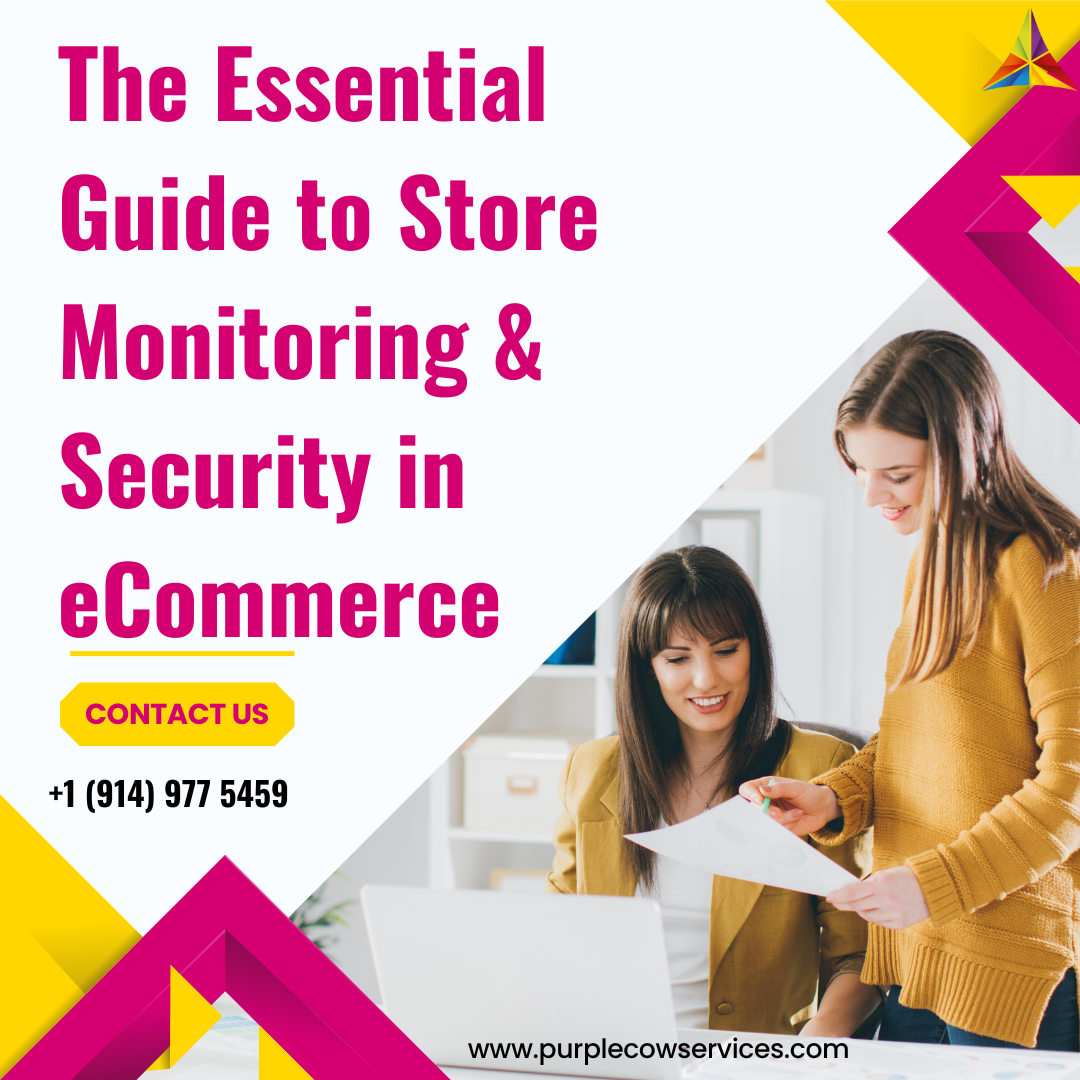With cyber threats on the rise and customer trust hanging in the balance, implementing effective store monitoring and security measures has never been more critical. In this comprehensive guide, we will delve into the essential strategies that every eCommerce business should adopt to safeguard their store and customers’ sensitive information.
-
Understanding the Importance of Store Monitoring & Security
Before we delve into the nitty-gritty of security measures, let’s underline why store monitoring and security deserve your undivided attention. With the increasing prevalence of cyberattacks, data breaches, and online fraud, customers are becoming more cautious about where they shop. Ensuring the safety of their personal and financial information is crucial for establishing trust and credibility.
-
SSL Certificates: The First Line of Defense
Securing data in transit is a foundational step in eCommerce security. SSL (Secure Sockets Layer) certificates encrypt the communication between the user’s browser and your server, ensuring that sensitive information like credit card details and login credentials remain confidential. Search engines also favor websites with SSL certificates, making it a win-win for both security and SEO.
-
Regular Software Updates: Keeping Vulnerabilities at Bay
Outdated software is a playground for hackers. Content management systems, plugins, and other software components must be regularly updated to patch security vulnerabilities. Hackers often exploit these vulnerabilities to gain unauthorized access to your store’s backend. Set up automatic updates where possible and conduct thorough testing after each update.
-
Robust Authentication and Authorization
Implementing strong authentication measures helps prevent unauthorized access to your store’s admin panel. Utilize two-factor authentication (2FA) for admin logins, ensuring that even if passwords are compromised, an additional layer of security prevents unauthorized access. Additionally, assign role-based permissions to limit the actions users can perform within the admin panel, reducing the risk of internal threats.
-
Monitoring and Intrusion Detection Systems
Invest in intrusion detection systems that monitor your store’s network traffic for any suspicious or malicious activity. These systems can identify patterns indicative of an ongoing cyberattack and trigger alerts for immediate action. Continuous monitoring enables you to swiftly respond to security breaches and minimize potential damage.
-
Secure Payment Gateways
The backbone of any eCommerce store is its payment processing system. Opt for reputable and secure payment gateways that are compliant with industry standards like PCI DSS (Payment Card Industry Data Security Standard). These gateways offer advanced encryption and fraud detection mechanisms, ensuring the safety of customers’ payment information.
-
Regular Security Audits and Penetration Testing
Periodically assess your store’s security posture through comprehensive security audits and penetration testing. A security audit identifies vulnerabilities and gaps in your security strategy, while penetration testing involves simulating real-world attacks to identify potential weaknesses. These tests help you proactively address security issues before they are exploited by malicious actors.
-
Data Encryption and Storage
Whether it’s customer profiles, transaction histories, or order details, sensitive data should be encrypted both in transit and at rest. Encryption renders the data unreadable to anyone without the decryption key, providing an extra layer of security even if a breach occurs.
-
Educating Your Team
Human error remains a significant factor in security breaches. Educate your team about cybersecurity best practices, the importance of strong passwords, and how to identify phishing attempts. Conduct regular training sessions to keep everyone vigilant and informed about the latest threats.
-
Emergency Response Plan
Prepare for the worst-case scenario with a comprehensive emergency response plan. Define roles, responsibilities, and procedures to follow in the event of a security breach. Having a well-thought-out plan in place can significantly minimize the impact of an attack and speed up recovery.
Conclusion
As the eCommerce landscape continues to evolve, so do the tactics employed by cybercriminals. Prioritizing store monitoring and security is not just a good practice; it’s a business imperative. By implementing SSL certificates, regular software updates, robust authentication measures, and vigilant monitoring, you can create a secure environment that fosters customer trust and protects your business’s reputation. Remember, in the world of eCommerce, security is not just an option – it’s the foundation on which successful online ventures are built.
Secure Success with Purple Cow‘s eCommerce Store Monitoring & Security Solutions. Safeguard your online business with our expert strategies: SSL certificates, real-time monitoring, robust authentication, and more. Trust us to protect your store, enhance customer confidence, and keep cyber threats at bay. Your eCommerce success starts with Purple Cow’s cutting-edge security measures.














